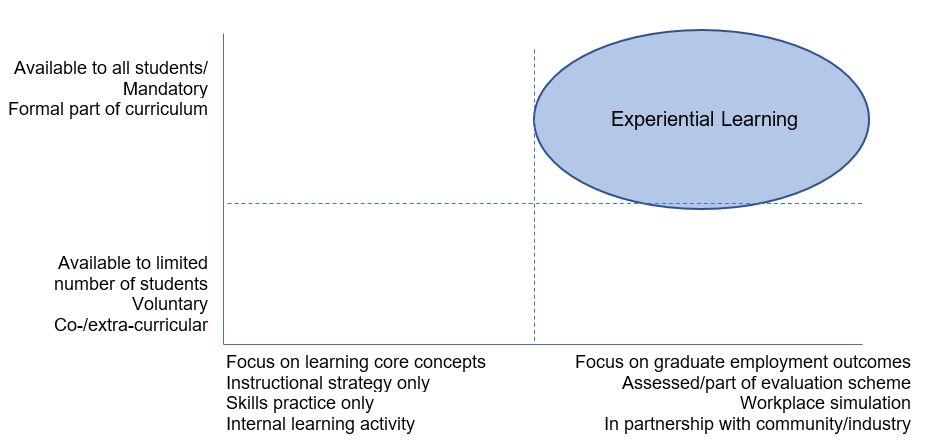Appendix A: Experiential Learning vs. Hands-On Learning
Not all hands-on learning is considered Experiential Learning. College faculty have long incorporated hands-on learning into their delivery and instructional strategies and many college vocational programs naturally require hands-on training within laboratories with industry-specific equipment. However, while hands-on learning can be a form of experiential learning, it does not necessarily involve students reflecting on their product. Also, instructional strategies that include hands-on learning strategies to teach core course concepts (e.g., laboratory/workshop activities, projects, and assignments) do not necessarily simulate a workplace environment that helps students to transition to employment either by preparing them to “hit the ground running” or by providing exposure to employers and real-world employment settings.
| Hands-on Learning | Experiential Learning |
| Labs
Group work Active learning Class trips Hackathons
|
Simulation labs
|
Determining if an Activity is Experiential Learning
The line between broad experiential/hands-on learning practices and structured Experiential Learning (EL) is indeed blurry. When determining if an activity or experience is EL, consider where it might be placed on the following graph.


